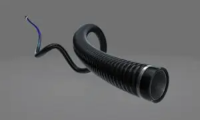-
Nanowear gets FDA clearance for undergarment that estimates blood pressure
- Source: drugdu
- 174
- January 9, 2024
-
FDA Authorizes Florida’s Drug Importation Program
- Source: drugdu
- 84
- January 9, 2024
-
BMS buys Karuna for US$ 14 billion; Astra-Ionis’ nerve damage drug bags FDA nod
- Source: drugdu
- 123
- January 8, 2024
-
FDA Grants Fast Track, Breakthrough Designations to CG Oncology Inc’s Cretostimogene Grenadenorepvec
- Source: drugdu
- 147
- January 6, 2024
-
Novo Nordisk, Eli Lilly’s weight-loss drugs under FDA scrutiny for suicidal thoughts, hair loss
- Source: drugdu
- 89
- January 6, 2024
-
FDA Fast Tracks Candel Therapeutics’ Novel Treatment for Pancreatic Ductal Adenocarcinoma
- Source: drugdu
- 174
- January 5, 2024
-
After a down year, FDA signs off on a bounty of new meds, including 7 from Pfizer
- Source: drugdu
- 224
- January 4, 2024
-
FDA clears neurovascular aspiration, access catheters from Perfuze
- Source: drugdu
- 174
- January 2, 2024
-
Amgen’s request for full approval of Lumakras in lung cancer denied by FDA
- Source: drugdu
- 220
- January 1, 2024
-
Boston Scientific initiates new Farapulse trial, expects FDA approval in 2024
- Source: drugdu
- 188
- December 30, 2023
your submission has already been received.
OK
Subscribe
Please enter a valid Email address!
Submit
The most relevant industry news & insight will be sent to you every two weeks.












